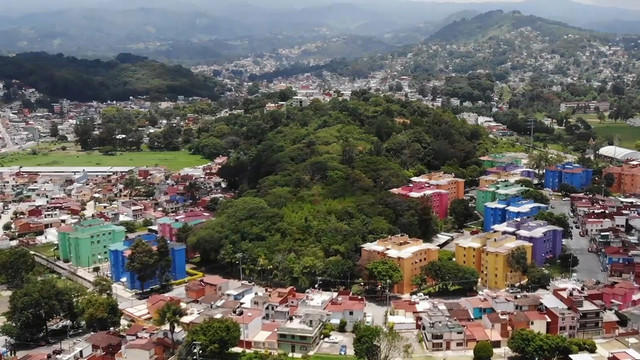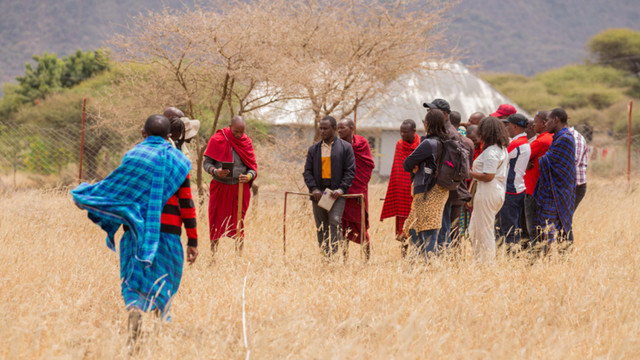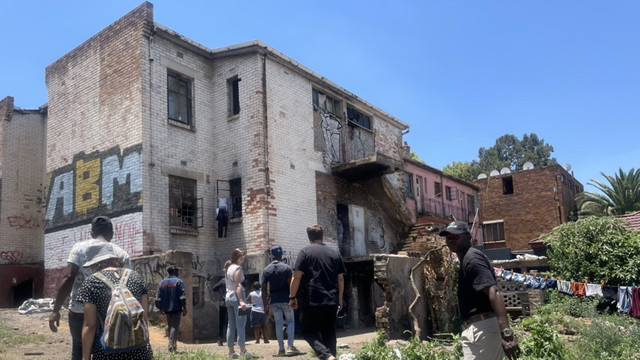Co-creating pathways to urban equality in a time of crisis
To mark the latest Environment & Urbanization journal, this IIED Debates event on 26 October focused on experiences of building pathways to urban equality in Tanzania, India and Brazil.

Freetown, Sierra Leone (Photo: Alexandre Apsan Frediani, IIED)
Over the past three decades inequality in cities has continued to rise. Given the rapidly growing proportion of the world’s population living in cities, shaping pathways to urban equality is one of the most urgent priorities of our time.
This online event explored a new wave of ‘pathways’ to urban equality co-constructed by active groups across Asia, Latin America and Africa that have been operating in distinct and diverse ways to advance the journey towards just urban futures.
Inequality has risen in at least three-quarters of cities since 1996. Global crises including climate change and the COVID-19 pandemic have compounded existing inequalities, bringing new challenges for people living in urban environments. Addressing the multidimensional nature of urban inequality requires complex solutions and must be grounded in local knowledge and action.
This IIED Debates online event brought together contributors to the latest issue of the Environment and Urbanization (E&U) journal which has been developed in partnership with the KNOW programme. The authors presented their experiences of building pathways to urban equality through the co-production of urban services in Dar es Salaam, Tanzania, planning education in India and Tanzania, and social mobilisations inside favela settlements in Rio de Janeiro, Brazil.
The panel shared reflections on the actions undertaken by communities, professionals, local authorities and civil society groups to address structural injustices and debate key questions including: how are communities and networks organising to challenge structural injustices via ‘pathways’? What are the fragilities of these pathways, their contradictions, and challenges? And how can we maintain the momentum of pathways within the present context of acute crisis?
About the speakers
Moderator
Alexandre Apsan Frediani is a principal researcher at IIED specialising in issues around human development in cities of the global South.
Speakers
Thaisa Comelli is a researcher at the UCL Institute for Risk and Disaster Reduction, working at Tomorrow’s Cities – a research hub whose mission is to reduce disaster risk for marginalised groups in global South cities
Caren Levy is professor of transformative urban planning at the University College London's Development Planning Unit. She has a special interest in institutionalising social justice in urban planning, community-led development and governance with a focus on housing, infrastructure and transport, and land management in urban areas in the global South. She was the principal investigator of Knowledge in Action for Urban Equality (GCRF, 2017-22).
Neha Sami is associate dean for the School of Environment and Sustainability and senior lead – academics and research at the Indian Institute for Human Settlements. Her research focuses on the governance of infrastructure, especially mega-infrastructure in the context of post-liberalisation urban India.
Joseph Mustapha Macarthy is an urban research expert and a well-established scholar in urban development and planning in Sierra Leone. He lectures in the Institute of Geography and Development Studies at Njala University. He is also the executive director of the Sierra Leone Urban Research Centre (SLURC) based in Freetown.
Event coverage
Watch a full recording of the event below or on IIED's YouTube channel, where individual links to the start of each speaker are also provided.
Read an interview where contributors address three key questions raised by the webinar’s attendees.
About IIED Debates
This event was part of the IIED Debates series. Through the convening of expert speakers and external stakeholders, IIED brings together an international community to discuss critical issues.
IIED Debates encompass both physical and digital events, including critical themes, breakfast debriefs and webinars. These events are public and are hosted regularly throughout the year online and when possible in our London and Edinburgh offices.
IIED events newsletter
Sign up to our mailing list for updates and invitations to events throughout the year, including webinars, critical themes and debriefs.
Contact
Juliette Tunstall (juliette.tunstall@iied.org) is internal engagement and external events officer, in IIED's Communications Group



